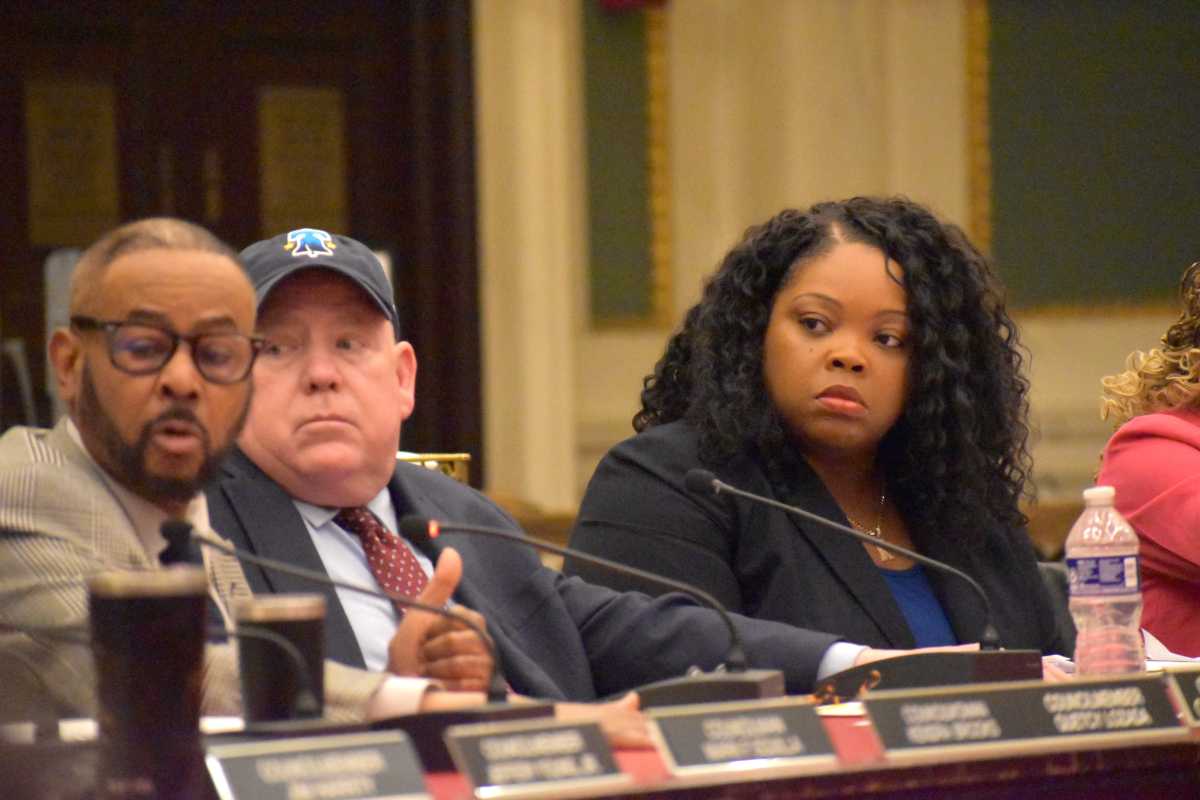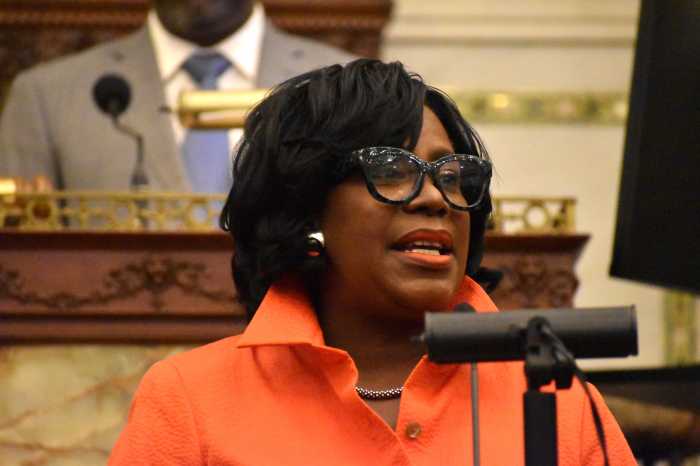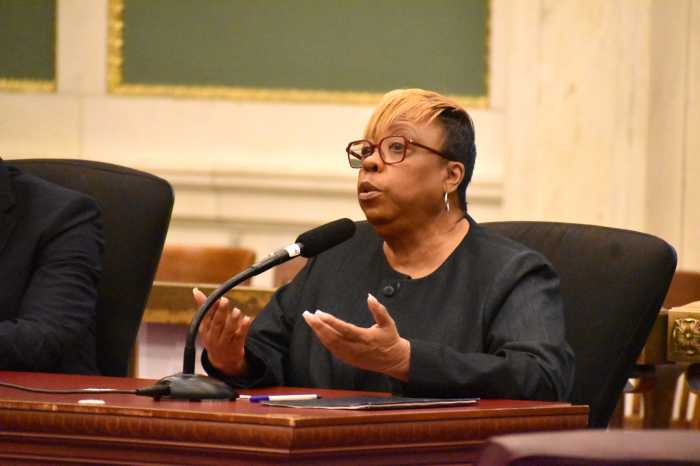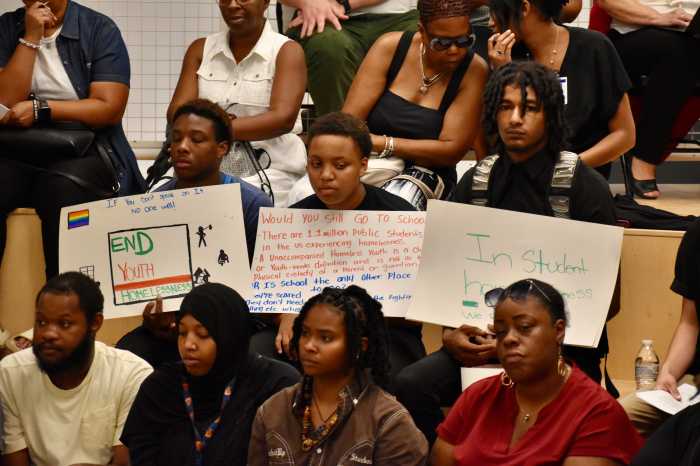Teenagers falling ill after buying THC gummies laced with benzodiazepines. Needles being displayed above candy. Selling cigarettes to 11-year-olds. Secret basements full of drug paraphernalia. Guns for sale in the back of the store.
Those were among the allegations City Council members and community leaders leveled against a certain class of convenience stores and smoke shops during a hearing Monday. Such establishments have proliferated across Philadelphia neighborhoods – from Society Hill to Kensington – in recent years.
“These illegal drug sales in stores continue to present a public safety crisis in our communities and are a detriment to the quality of life,” said Dee Dukes, head of the Wynnefield Community Neighborhood Association.
Another neighborhood leader, Cait Allen, testified that Queen Village and Bella Vista contain 16 drug paraphernalia stores, which are often marketed as selling food or candy.
“Most of these establishments are a brazen or, at best, a thinly-veiled illegal drug market,” added Allen, president of the Queen Village Neighbors Association.
Lawmakers have passed a number of bills to crack down on “nuisance businesses,” and their efforts have helped, according to the community organizers and representatives from Mayor Cherelle Parker’s administration. However, the flood of shady shops continues.
“The more we try to hold these bad actors accountable, the more creative they get in circumventing the law,” Council Majority Leader Katherine Gilmore Richardson, an at-large member, said.
Councilmember Quetcy Lozada, of the 7th District, said some business owners “have gotten accustomed to doing things the way they want to do them.”
Nuisance stores are regulated by the city’s Department of Licenses and Inspections, Philadelphia Police Department and the Department of Public Health, which handles tobacco enforcement.
Most investigations initiated through L&I begin with a 311 complaint, said Renee Rinehardt, the department’s code enforcement officer. An inspector will review the property’s zoning before heading to the business, she added.
To sell drug paraphernalia, a business must have a special permit that almost always requires a zoning variance. If the inspector finds a shop improperly displaying the items, they can issue a violation, a partial cease operations order (barring the store from selling the prohibited merchandise) or a full cease operations order (closing the entire business for a period of time).
The orders can be lifted if the infractions are corrected during a follow-up check, which usually occurs within 30 days of an initial inspection.
Only 14% of businesses are found to be out of compliance at that second inspection, and the department has identified 30 repeat offenders since launching the Drug Paraphernalia Enforcement Program in 2021, in response to prior Council legislation.
“We know and the community members know where these nuisance establishments are,” Councilmember Jamie Gauthier, of the 3rd District, said. “It takes way too long to get action.”
L&I does not confiscate the paraphernalia, allowing the owner to retain the items, said Bridget Collins-Greenwald, commissioner of the department’s Quality of Life division.
In contrast, the department does take merchandise from unlicensed vendors hawking sports gear. The vendors can get their products back from a warehouse after going through a process, city officials said.
Lawmakers suggested a similar approach to nuisance businesses. Deputy Police Commissioner Frank Healy said the city currently does not confiscate paraphernalia because it is only illegal to sell, not to possess. Many times, street vendors have counterfeit clothing and are not permitted to sell anything, officials added.
Store owners can get around penalties by selling their businesses or incorporating a new limited liability company, or LLC, which Healy likened to a “shell game.”
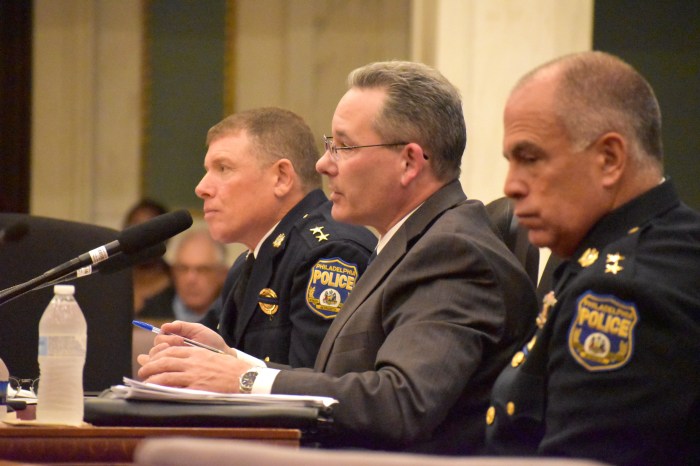
Healy wondered whether a law could be crafted tacking violations to the new LLC, if it is composed of the same people or their associates. Council members, including Curtis Jones Jr., suggested applying penalties to a specific address, rather than a business.
Jones said some establishments displaying paraphernalia also offer shots of liquor, loose cigarettes and so-called “skill game” terminals. Such locations can become “watering holes” that attract crime, he added.
The PPD can move to shut down a store if officers determine the business contributed in some way to a violent offense, such as a homicide or shooting, Healy said. Police can also take action if a shop is connected to at least three minor crimes within a 12-month period.
Council indicated they could take up the issue as part of the ongoing budget process. Members questioned whether the departments need additional staffing to regulate the paraphernalia store 24/7.
L&I has a dedicated nuisance property unit with a supervisor and a handful of inspectors that work nights and weekends, according to Collins-Greenwald.
Gilmore Richardson, who authored the resolution calling for Monday’s hearing, told reporters she “notated a number of legislative opportunities.” She said has already drafted one law and intends to introduce a package of bills this spring.
“Upon the conclusion of today’s hearing, we must address this issue once and for all,” Gilmore Richardson said near the beginning of the two-hour meeting.



